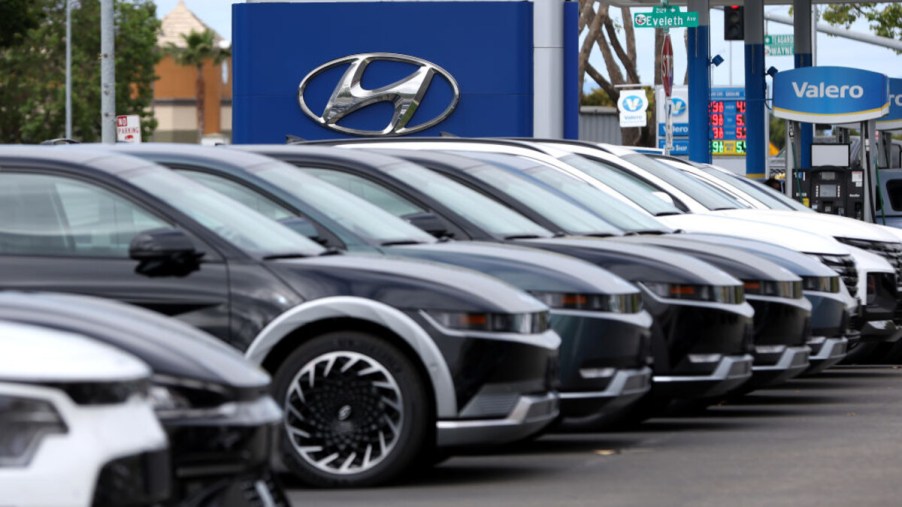
Why Hyundai and Kia Are Getting Sued by an Entire City
Many car companies have faced legal challenges of one kind or another. Innovations from seat belts to self-driving options have been shaped by legal challenges and regulatory requirements. The interaction between product development and the requirements of law is simply part of every automaker’s business. That said, when an entire city sues a car company, something special is clearly happening. Here’s why Louisville, Kentucky is currently suing Hyundai and Kia.
Hyundai and Kia: theft, threats, and TikTok
In fact, Louisville is just one city suing the Korean automakers. Per Reuters, 17 city governments, including Baltimore, Chicago, New York, San Diego, Seattle and more, have since joined the lawsuit. Just what inspired some of America’s largest cities to take Hyundai and Kia, both owned by the Hyundai Motor Group, to court?
The short answer is TikTok, technology claims, and theft. Louisville spells out the issue in a press release: despite claims of onboard “anti-theft technology,” Hyundai Motor Group doesn’t fit its vehicles with industry-standard immobilizers. Hyundai and Kia cars have thus proven absurdly easy to steal. Social media sites have even hosted how-to videos teaching malefactors to unlawfully snag themselves some sensible Korean wheels. It’s almost become a trend, the felonious equivalent of a TikTok dance.
Chicago provides hard numbers for the crisis. Just 500 Hyundais and Kias were stolen in that city during the first half of 2022. 8,350 were stolen in the second half. Hyundai and Kia represent just 7% of the vehicles in Chicago, but currently comprise half of the auto thefts in that city.
As absurd as “teens are stealing Hyundais because of TikTok” sounds—and it sounds pretty absurd—it is a genuine problem. As Chicago points out, Hyundais and Kias are mostly inexpensive, economical cars. The vehicles being stolen often belong to the city’s poorer residents, people who simply can’t afford to lose their vehicles.
Legal remedies and technical fixes
According to the Reuters report, Hyundai and Kia are pushing for American courts to reject the lawsuits out of hand. Hyundai Motor Group argues that the cities in question are dealing with “an unprecedented criminal social-media phenomenon,” not a fixable technical problem.
It also suggests the cities in question are more liable for the rash of thefts than the automakers, accusing them of poor policing and insufficient investment in crime prevention.
In response, the cities assert that this problem is specific to Hyundai and Kia vehicles and due directly to engineering decisions by those brands. The Louisville press release notes that, while 96% of new cars were fitted with immobilizers as of 2015, only 26% of Hyundai and Kia cars had that safety feature.
Hyundai Motor Group didn’t make immobilizers standard in their cars until 2021. Per the cities, Hyundai Motor Group failing to implement an anti-theft feature that had been standard for years across the industry was actionable negligence.
The cities also cite an earlier class action lawsuit over the same issue. Hyundai settled with the plaintiffs in a $200 million deal and committed to a security update for all those affected. The cities argue that victims of theft in their jurisdiction deserve the same support.
As to which argument will prevail, only time will tell. As of September 2023, the issue was still in the hands of the courts.



